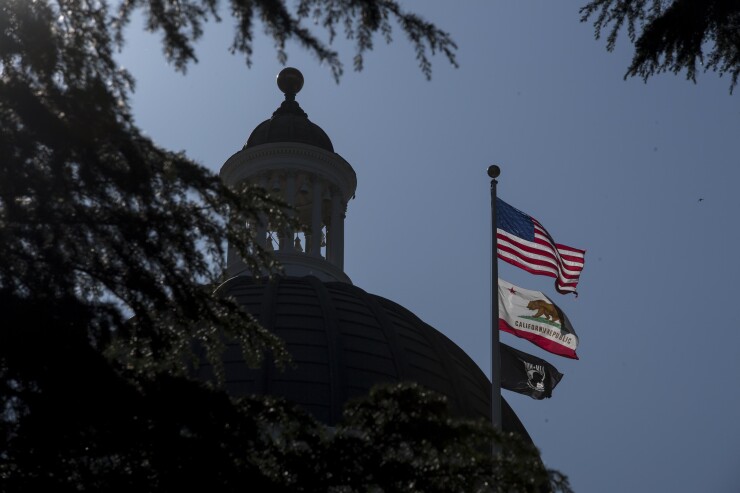California cities and counties that don't plan for enough housing to be built within their borders could face big consequences -- up to $600,000 a month -- under a new agreement Gov. Gavin Newsom and state legislators unveiled on June 27.
Jurisdictions that don't meet the state's residential planning requirements could face fines of between $10,000 and $600,000 per month, while those that do would be dubbed "prohousing" and get a leg up in competing for coveted infrastructure funding, according to new bill language released as part of the state's budget. The deal is a big step forward in Newsom's push to hold local governments accountable for building their way out of the housing shortage.
"The high cost of housing is chief among the affordability and quality of life challenges families face," Newsom wrote in a joint press release with Senate President Pro Tem Toni Atkins (D-San Diego) and Assembly Speaker Anthony Rendon (D-Lakewood). "Importantly, we have come to agreement on a package of housing measures, one that creates strong incentives -- both sticks and carrots -- to help spur housing production across this state, all while providing significant levels of funding to fight homelessness."

The deal also provides significant funding to tackle the housing and homelessness crisis, including $275 million to help house the homeless in the state's largest cities, including San Jose, Oakland and San Francisco. And the measure would streamline the creation of supportive housing and navigation centers for the homeless.
State Sen. Scott Wiener, D-San Francisco, applauded the housing plans.
"I support the housing budget trailer bill and thank the Governor and legislative leadership for moving forward a strong and forward-looking piece of legislation," he wrote in an emailed statement. "In addition to significant new funding for affordable housing, this bill puts teeth into existing state laws, to ensure cities and counties actually follow those laws. This improved approach to enforcement is a positive step."
Under the new enforcement approach, cities wouldn't be required to actually build the housing needed -- but they would be required to plan for it. Every jurisdiction has a state-mandated housing goal -- a target most cities in the state are failing to meet, especially when it comes to affordable housing production. Those failures wouldn't open a city up to a fine. But cities would be fined if they don't submit a plan that allows for enough housing to be built, or if they impose zoning rules that restrict construction to the point where their building goals cannot be met.
Any fines imposed upon a city with an inadequate housing plan would require a court order, and the city would have several chances to correct the problem before having to pay. If a city reaches the maximum fine and still fails to comply, a judge could step in and take over the city's planning and zoning regulation.
As of now, most cities and counties in the Bay Area have their housing plans in order and therefore would be safe from those penalties, thanks to a push over the past decade to become compliant, said Michael Lane, deputy director of SV@Home. The Metropolitan Transportation Commission already rewards compliant cities with transportation and infrastructure dollars, he said.
Newsom had originally proposed docking local governments' transportation funding -- including money from the recently passed "Gas Tax" (Senate Bill 1) -- if they failed to plan for enough housing. But after a backlash from legislators, he changed tactics, opting instead for generic fines and rewards for good behavior.
The provisions announced Thursday would be tacked on to a budget that includes $1 billion in spending to fight homelessness throughout the state, and another $1.75 billion to support increased housing production -- sums housing advocates have cheered as major leaps forward in tackling the state's housing crisis.





